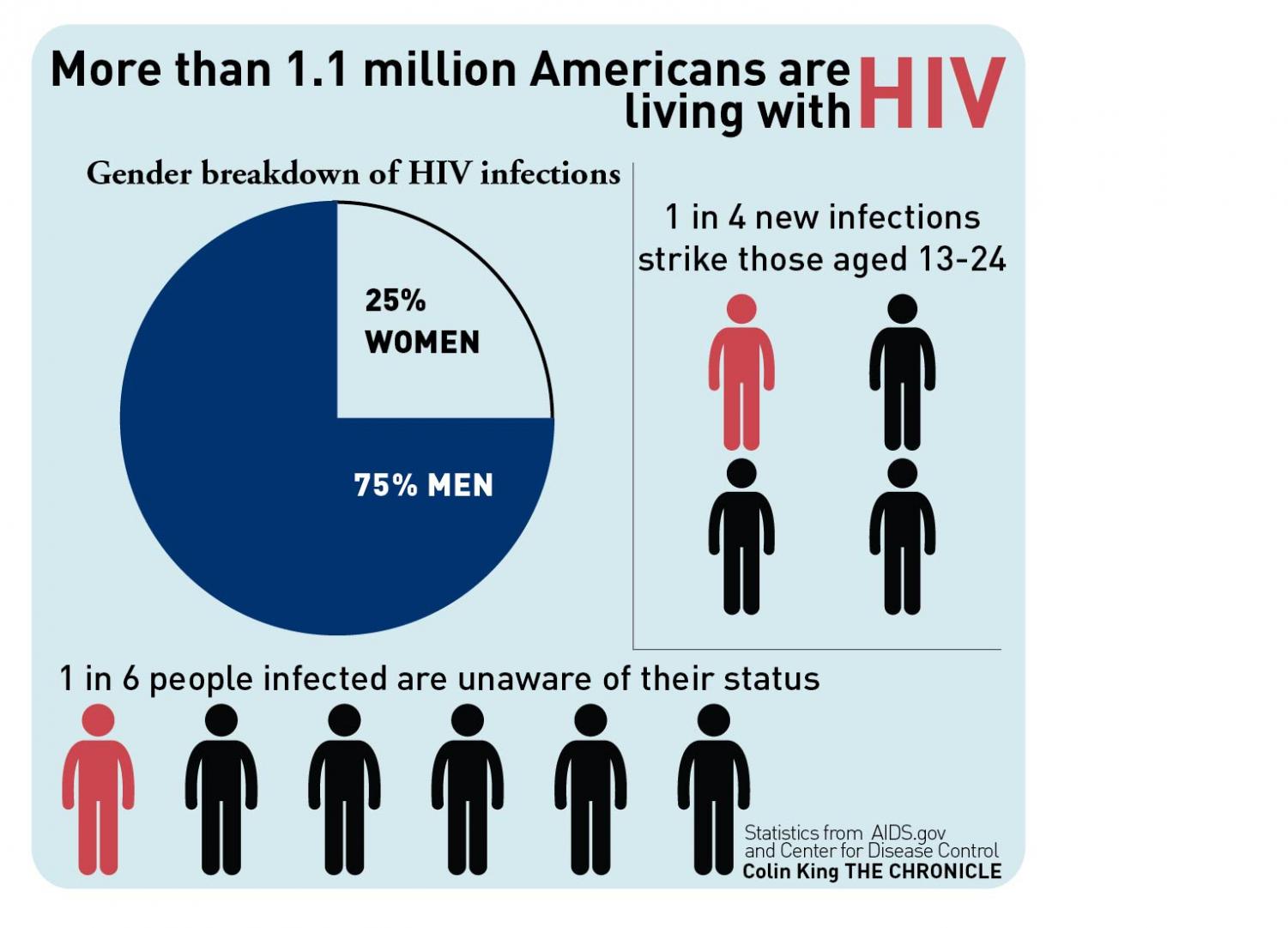Free HIV testing returns to campus
September 8, 2014

After a two-year hiatus, free on-campus HIV testing will return to Columbia to promote safe sex.
On-campus HIV testing had been discontinued in 2012 after city funding that supported the service was cut. Without the funding, the college could no longer afford to provide it, said Mark Kelly, vice president of Student Success.
“We want our students to have as much as we can make possible [and] the resources to support that, whether it’s free HIV testing and counseling, workshops on leading healthy sexual lives or addressing issues of sexual assault and violence on campus,” Kelly said.
Kelly said the college is heavily advertising these resources because it wants students to be aware of what is available to them.
Lee Cravens, coordinator of Student Relations, said he worked with his department to make HIV testing a regular fixture on campus again because students and faculty advocated for it. After partnering with the Chicago AIDS Foundation to do testing during the college’s Spring Wellness Fair, Cravens said he secured on-campus HIV testing once a month with the help of CALOR, a leading AIDS/HIV organization in the Belmont-Cragin neighborhood of Chicago.
“They get a grant to provide so many tests,” Cravens said. “So it’s great for us because we get free testing and great for them because they have more people to test on.”
According to Cravens, the testing process takes less than an hour. He said students fill out paperwork, take an oral swab test and wait for the results, which come back within 20 minutes. Cravens also said there are resources available to help students deal with unfavorable results. He added that all student information is confidential.
“These folks are equipped to do any kind of crisis counseling or education if a student was to test positive,” Cravens said. “They also have services where they can directly connect the student with a physician in order to get screened for any concerns, but also to get a prescription for medication.”
Cravens said his office is always open if students need to talk about their results. Cravens said his goal is to encourage students to get tested.
“I want students to feel like testing is not something to be ashamed of,” Cravens said. “Sex is normal and part of being human, so we want to encourage responsibility. If we can create an environment where testing is non-judgmental, easy and free, that’s what I’m looking for.”
Most of CALOR’s previous work has been with HIV-positive and disabled individuals. The organization, which is fully titled Comprehensión y Apoyo a Latinos en Oposición al Retrovirus—Spanish for “Comprehension and Support for Latinos in Opposition to HIV”—is part of the Anixter Center, which primarily serves disabled individuals. Oscar Verduzco, a testing and referral coordinator at CALOR, said the college was on its radar as a way they could reach their target population of young gay men.
“We’re funded by the Centers for Disease Control [and Prevention] for a grant that targets specifically men who have sex with men (MSM) between ages 18–29, and part of my duty is just to identify testing venues that would serve young people,” Verduzco said.
He said that the college age group statistically contracts the most infections, which makes it vital that students are tested regularly.
“We know that young people getting STDs means they are also exposing themselves to HIV,” Verduzco said.
According to Verduzco, CALOR will also educate students about preventive precautions during testing. Verduzco said all of the organization’s employees are trained for testing, but one staff member will do the testing and two will coordinate the event, pass out relevant information and answer questions.
Ryan Tynan, a freshman television major, said having free on-campus testing will make it easy for students to be proactive about their health.
“It gives kids that extra boost to actually go out and get tested,” Tynan said. “I know friends who don’t get tested because it’s too expensive, so this is an opportunity for them to stay on top of their health without excuses.”
Kathryn Mercado, assistant manager of Prevention Services at CALOR, said students should be encouraged by their college to lead healthy sexual lives. She said not everyone was brought up in an environment where sex was discussed in an open, non-shaming manner, which is why CALOR hopes to bring light to the issue and make students feel comfortable talking about the topic.
“Stigma is spread through more than just our target demographic,” Mercado said. “Just being there, present and visible for all students, will address the stigma associated with lack of knowledge about HIV.”
Testing began Sept. 4 at the college’s Hooping for Health event and will take place on the first Thursday of every month starting Nov. 6 from 11:30 a.m.–2:30 p.m. on the 8th floor of the 1104 S. Wabash Ave. Building. Testing will also be available at the fall wellness fair Oct. 8 located at The Haus on the first floor of the 623 S.Wabash Ave. Building.







